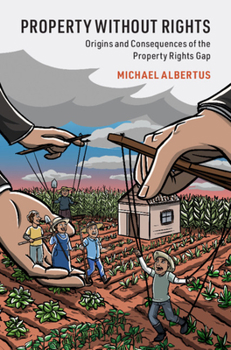Property Without Rights : Origins and Consequences of the Property Rights Gap
Select Format
Select Condition 
Book Overview
Major land reform programs have reallocated property in more than one-third of the world's countries in the last century and impacted over one billion people. But only rarely have these programs granted beneficiaries complete property rights. Why is this the case, and what are the consequences? This book draws on wide-ranging original data and charts new conceptual terrain to reveal the political origins of the property rights gap. It shows that land reform programs are most often implemented by authoritarian governments who deliberately withhold property rights from beneficiaries. In so doing, governments generate coercive leverage over rural populations and exert social control. This is politically advantageous to ruling governments but it has negative development consequences: it slows economic growth, productivity, and urbanization and it exacerbates inequality. The book also examines the conditions under which subsequent governments close property rights gaps, usually as a result of democratization or foreign pressure.
Format:Paperback
Language:English
ISBN:1108799833
ISBN13:9781108799836
Release Date:January 2021
Publisher:Cambridge University Press
Length:416 Pages
Weight:1.35 lbs.
Dimensions:0.9" x 7.7" x 8.9"
Related Subjects
Business Business & Investing Economics Political Science Politics & Social SciencesCustomer Reviews
0 rating





